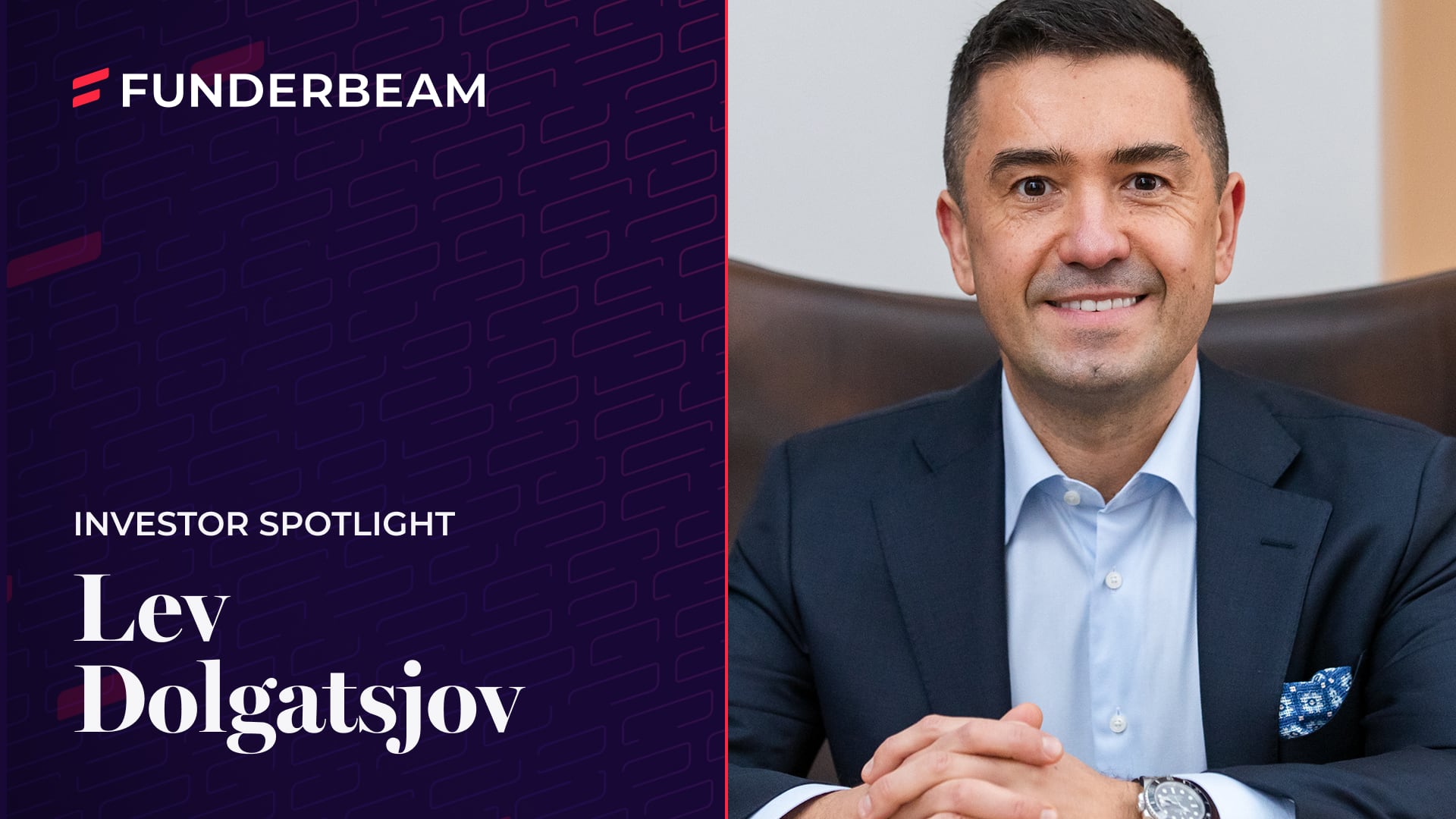Investor Spotlight – Lev Dolgatsjov
In the Investor Spotlight today is President of EstBAN and well-known Estonian Investor Lev Dolgatsjov.

In the Investor Spotlight today is President of EstBAN and well-known Estonian Investor Lev Dolgatsjov.
Why do you invest in early-stage companies as an asset class? What is your motivation?
The primary motivation for me is giving back to society. I’m trying to find early-stage companies that will be very successful, create a lot of jobs and make big positive changes to the way we live.
Additionally, it helps me stay on the edge of technology and meet many wonderful people.
Are you more of a trader or an investor type? Why?
I’m an investor type. Early-stage investing is all about patience. You invest, you try to be helpful to founders, you probably invest a bit more later and you stay onboard for a long time – this is how it works for me.
What are the three criteria by which you choose your investments?
Traction (KPI growth tempo), team, scalability potential.
Do you consider investing in companies with solo founders or only in companies with several founders?
Solo founders are always a bigger theoretical risk, but I’m ok with investing in solo founders. I’ve seen many start-ups starting with well-balanced teams, then suddenly converting to solo founders, and then overcoming it. It’s no big deal for me; if the core founder is 100% dedicated and is passionate about delivering, it’s ok.
What are your priorities and why: team, product/idea, total market availability, timing?
Everything is meaningful, including timing, as you mentioned. Sometimes it’s too late or too early to enter the market with a certain type of product.
Does the company have to have a unique product to draw your attention?
No. They must have great execution and great scalability potential.
Starting from which stage do you invest? Idea, MVP, pre-revenue, etc.
Mostly from the revenue stage. 3-5 K of MRR is the sweet spot. Can be more, can be a bit less. Idea stage – never. MVP/pre-revenue stage – almost never.
Is it essential to motivate all employees by options in the company?
Core team – yes. All employees – it won’t do any harm if you do it right with the legal part of vesting, but it depends on the specifics of the company.
How many investments do you currently have? Can you name them?
A quick calculation gives 26. Their names are (in random order): eAgronom, Fusebox, Cuploop, Bolt, Cleveron + Cleveron Mobility, Remato, DriveX, Teamscope, eID Easy, FleetGuru, Eziil, Ender Turing, VSight, Parcelsea, CENOS, Clickwork Games, Ringy, LexiMarket, Barking, GuavaHR, Jeff App, Alpaka, VideoCV, Zelos. Plus one more that I’m now trying to exit on the secondary market, but I will not name them here. I made a mistake investing there but it was my fault, not theirs.
What companies are on your watchlist now?
I’m keeping an eye on at least 50-70 start-ups, maybe even more than 100.
What are the basic principles of how you manage your early-stage investment portfolio? (Do you do follow ons? When to exit, how much, etc.)
As an angel investor, I’m trying to be as helpful as founders need me to be. I do follow-on investments, but not always. It depends on progress, round valuation, the round itself, etc. There are many criteria, sometimes even including gut feeling. I’m not one in a rush to exit quickly; I’d rather see a company fully realise its potential.
What are your biggest success stories and biggest failures?
My biggest failures so far are all related to not making investments that I’ve made later anyway, just on a way bigger valuation. My biggest success story is being able to invest in so many great companies.
What multiplier do you expect for your investment portfolio?
We’re talking about the ‘early stage’ part of my whole investment portfolio, right? Well, as you already know, my primary motivation with this part of the portfolio is not about making multipliers. Of course, getting some returns would be nice, and getting some good returns would be even nicer, but I will be happy even if I make no returns at all. The beauty of this game is worth it.
What are your suggestions to investors who are thinking of starting early-stage investing? What to do, what not to do.
1. Be careful with what you’re doing and be ok in advance with losing all the money you invest in start-ups.
2. Educate yourself. Then educate yourself again. Then keep educating yourself over and over again.
What source of information do you recommend following for others interested in early-stage investing?
Don’t use a single source, use many sources. The main source for beginners would be communicating with other early-stage investors. Find local communities of investors and join them. Listen, ask, and go to events. Talk to many people and try to find your own approach.


